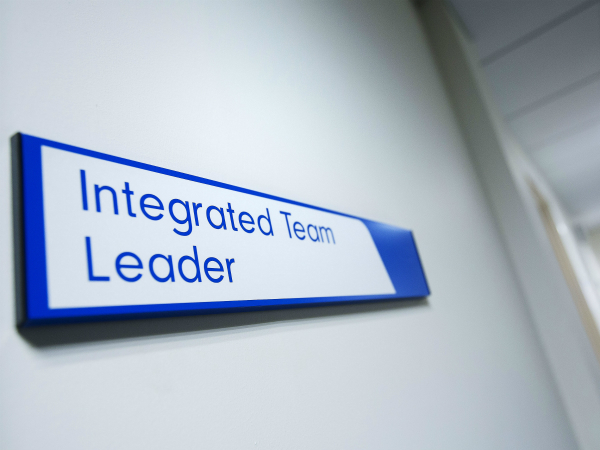
By Robin Miller and Catherine Mangan, senior fellows at the Health Services Management Centre and Institute of Local Government Studies, University of Birmingham
“Some GPs are very prescriptive. They think if someone’s got dementia they need 24/7 institutional care, which isn’t always the case” – a social worker.
“Social work training is varied – they go to college, not necessarily university, I’m not sure there is a university degree for social work” – a GP.
Health and social care professionals all have perceptions about one another. But to make integrated care a reality, it’s important to unpick some of the issues behind the stereotypes.
We know the relationship between GPs and social workers is crucial, but it is often difficult. These services have existed in parallel and communicated only when necessary. In many ways, we have just accepted this as a consequence of their different approach and interests.
Power is also an issue – general practice and social work are the main professions within their respective services and perhaps don’t like to compromise as a result. Both professions have the best interests of the service user at their heart, but often have alternative views on how someone should be supported.
The two services are also very busy and the increasing demands can be a barrier to learning about the other – even though this will make their work more efficient in the long run.
Action research project
We were funded by the West Midlands Academic Health Science Network to undertake an action research project that would explore what the relationship between adults’ social workers and general practice teams is like in today’s policy and practice.
The project had two major components. We undertook some qualitative fieldwork with groups of professionals from the two services, which looked at the current perceptions and experiences of collaboration with one another. The second part was to develop some training materials that would enable the two services to work better together. These materials are hosted exclusively on Community Care Inform Adults.
What did we find?
The negative perceptions professionals had of each other really outweighed the positives and impacted on the working relationships that they had.
There was a very big gap in terms of knowledge and understanding of each other’s roles. For example, GPs didn’t understand the day-to-day social work roles, the cases they hold, funding constraints, or the training they have to undertake.
There was also a very strong sense of hierarchy. Social workers felt GPs were at the top of this hierarchy and this meant there was a lack of constructive challenge between adult social work and general practice teams.
Overall, there was a lack of effective inter-professional working relationships, a lack of effective communication and as a result the joint decisions being made were not as effective as they could have been.
From mistrust to trust: improving relationships between social workers and GPs
How the training materials work
Inter-professional development, in which different professionals learn with and from each other, is well proven to enable collaborative working. The training materials have been designed to try and address the quality of inter-professional relationships. They build on the real life experiences and perspectives of social work teams and general practice to develop activities that open up dialogue about education, incentives, responsibilities and values – the aspects that research tells us are vital.
Participants in our sessions couldn’t believe how little they knew about each other’s roles and processes, and were often a little embarrassed about some of the less flattering stereotypes they held. The sessions enabled them to share their concerns and uncertainties as a means for more positive joint-working going forward.
Top tips to help social workers and GPs work better together
- Don’t be afraid to ask other professionals about their roles and professional backgrounds – if we don’t understand each other, it’s harder to work well together.
- Encourage your team to share insights into how the other services work – and make sure someone finds out any details no one is sure of.
- Don’t assume that others will have been kept up to speed with changes within your organisation – be proactive in checking that they understand new initiatives and structures.
- When a new staff member joins the team, ensure a visit to other health and social care services is part of their induction. This is a great opportunity for someone to start developing contacts and to ask questions that others may benefit from.
- Incorporate some ‘socialising’ into multi-disciplinary team meetings. This helps to develop that vital personal connection. It might not feel like the best use of time, but deepening your understanding of one another will improve the effectiveness of working relationships.
Final thoughts…
Challenging other professionals is often a hard thing to do, but constructive disagreement is an essential part of developing a holistic response to a service user’s needs.



 Bournemouth, Christchurch and Poole
Bournemouth, Christchurch and Poole  Hampshire County Council
Hampshire County Council  Lincolnshire County Council
Lincolnshire County Council  Norfolk County Council
Norfolk County Council  Northamptonshire Children’s Trust
Northamptonshire Children’s Trust  South Gloucestershire Council
South Gloucestershire Council  Wiltshire Council
Wiltshire Council  Wokingham Borough Council
Wokingham Borough Council  Children and young people with SEND are ‘valued and prioritised’ in Wiltshire, find inspectors
Children and young people with SEND are ‘valued and prioritised’ in Wiltshire, find inspectors  How specialist refugee teams benefit young people and social workers
How specialist refugee teams benefit young people and social workers  Podcast: returning to social work after becoming a first-time parent
Podcast: returning to social work after becoming a first-time parent  Podcast: would you work for an inadequate-rated service?
Podcast: would you work for an inadequate-rated service?  Family help: one local authority’s experience of the model
Family help: one local authority’s experience of the model  Workforce Insights – showcasing a selection of the sector’s top recruiters
Workforce Insights – showcasing a selection of the sector’s top recruiters 

 Facebook
Facebook X
X LinkedIn
LinkedIn Instagram
Instagram
Comments are closed.